This post contains affiliate links for which we may receive compensation at no additional cost to you. Click here to read our full affiliate policy.
June brings joy! We greet summer, celebrate the end of the school year, and maybe even savor some time away from work.
It’s also Great Outdoors Month; here are a few of our June Epic Book Recommendations highlight titles that honor the natural world.
For many of our students, bicycles are connected to spending time with friends and exploring the neighborhood, but for students in rural areas of developing countries, bicycles are lifelines that allow them to attend school.
This short picture book by Alma Fullerton (richly illustrated by Brian Deines) shares the story of Anna, a Tanzanian girl whose life is changed by a bicycle library and the generosity of friends. It’s perfect for early elementary students, and it would pair well with World Bicycle Day on June 3rd.
Therapy ideas and skills to target:
- Compare and contrast: Students could discuss the similarities and differences between bicycles and other modes of transportation.
- Friendship and emotions: The tone of this book is matter-of-fact, allowing students the freedom to make their own interpretations about how the characters might feel as a result of the different plot events.
- Research and extension: Organizations like World Bicycle Relief are tackling the complex issue of school transportation in rural areas, and students could research what they are doing and why. They might even be inspired to design their own solutions!
Washed Ashore: Making Art From Ocean Plastic
This stunning offering from author Kelly Crullis is both a creative exploration of beauty in unexpected places, and a sobering reflection on our ocean’s vulnerability. It shares the work of Angela Haseltine Pozzi, who creates giant sculptures of sea creatures, using plastic pollution from beaches.
Filled with fun animal facts (did you know that parrotfish produce sand with their bodies?) and simple ideas for how to help the ocean, this gem begs to be read in June, when it could accompany World Reef Day (June 1st), World Ocean Day (June 8th), or World Sea Turtle Day (June 16th). It’s also a rare book that students of almost any age will enjoy!
Therapy ideas and skills to target:
- Describing: The whimsical yet lifelike animal sculptures in this book provide many opportunities to describe. Students could talk about what the animals look like, or they could do some research and describe the animals’ habitats, diets, and other quirks. They could even search for photos of the featured animals, and compare/contrast them with the sculptures.
- I Spy: Pozzi uses discarded household objects to create her sculptures, so in a variation on describing, students could play “I Spy,” giving hints about one of the objects in a sculpture until their classmates guess what it is.
- Research and extension: The possibilities for additional exploration are nearly endless with this book. As a starting place, I recommend Pozzi’s organization Washed Ashore, which houses a comprehensive education hub filled with lesson plans and resources.
This inspiring book is also available in hardcover.
Kunkush: The True Story of a Refugee Cat
If National Hug Your Cat Day (June 4th) and World Refugee Day (June 20th) were on opposite sides of a Venn diagram, this heartwarming book would be in the middle!
Kunkush is about a widow and her five children, who flee Iraq via boat, bringing their beloved cat with them in a basket. As they step ashore in Greece, Kunkush the cat escapes from his basket and is separated from his family. I don’t want to give away too many spoilers, but through the kindness of strangers and the magic of social media, Kunkush ultimately finds his people again.
Late elementary and middle school animal lovers will be drawn to Marne Ventura’s text and Beidi Guo’s illustrations, but a few scenes might be upsetting for highly sensitive students.
Therapy ideas and skills to target:
- Articulation: If you’re looking for a unique multisyllabic word with /k/ or “sh,” Kunkush has you covered!
- Vocabulary: This book includes excellent words to learn and practice, including “huddle,” “chaos,” “feral,” “roam,” “snarl,” “prance,” “reunite,” and “elated.”
- Research and extension: There are so many ways to expand on the lessons from this special book! Younger students could create guidelines for how to care for cats and other pets. For older students, the United Nations has a robust library of materials about refugees. Given the central role that social media plays in Kunkush, it’s also a prime opportunity to discuss digital citizenship.
Grab a hardcopy of this beautifully illustrated book on Amazon.
Lights Day and Night: The Science of How Light Works
In the Northern Hemisphere, June 21 is the longest day of the year. Why not use some of that abundant daylight to learn about, well, light?
Captivating and colorful, this nonfiction book delves into the science of both natural and artificial light. Ellen Rooney’s quirky illustrations illuminate (see what I did there?) the content, and author Susan Hughes provides plenty of mini-experiment ideas to help students connect with the concepts she describes.
Therapy ideas and skills to target:
- Narrative and sequencing: Although this is a nonfiction book, it includes detailed instructions for a shadow puppet show activity that serves as a chance for students to grow and display their storytelling skills. (In addition, assembling the materials for the show requires following directions!)
- Wh-questions: Lights Day and Night invites many different wh-questions. At times, the book explicitly asks and then answers a wh-question in its text (e.g., “What is light?”), making it a great resource for students who need modeling with this skill.
- Disability and sensory education: One of the things I love about this book is its inclusivity! The author reminds us that only sighted people use light to see – and that people with sensory disabilities employ diverse strategies to gather information. Later in the book, she includes a Deaf person who uses a flashing light instead of a doorbell. Students who are interested in learning more about disabilities may want to check out the massive collection of resources from the advocacy organization RespectAbility.
You can purchase a hardcopy of this delightfully informative Science of How book here.
After 20 years of studying trees, pioneering rainforest scientist Margaret “Canopy Meg” Lowman was determined to explore the rainforest canopy, something that had never been done before. So, she took matters into her own hands – literally! She sewed a harness from seatbelt straps, used a slingshot to launch a rope over the branches of a tree, and began climbing.
In the years that followed, Meg became a rainforest legend, teaching people all over the world how to steward their local rainforests. This book from Heather Lang (with illustrations from Jana Christy), tells her story, and it’s the perfect companion to World Rainforest Day on June 22nd.
It’s likely to be especially appealing to older elementary students who have deep special interests, feel different from their peers, and/or love nature.
Therapy ideas and skills to target:
- Figurative language: The language in this book is beautifully poetic, filled with metaphors like, “the steamy forest painted her with a coat of sweat.” Students could infer the meanings of these metaphors – and create their own!
- Sequencing and retell: Although it’s a nonfiction work, The Leaf Detective reads like a thrilling adventure story. Students could talk about the events of Meg’s (fascinating!) life – and even make predictions about what she will do next.
- Research and extension: Students who are eager to learn more about Meg and her work could check out her YouTube channel, and her vibrant website. They might even be inspired to become arbornauts themselves!
Grab The Leaf Detective in hardcopy.
All of these books are available for free through Epic when you sign up for an educator account, or you could request them from your local library. Have fun!

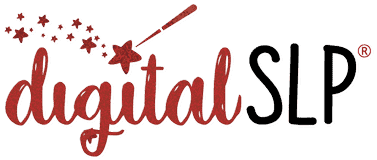
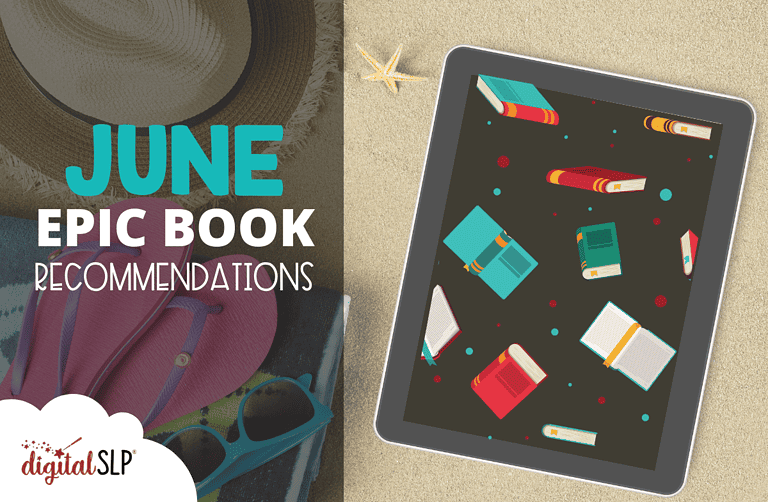
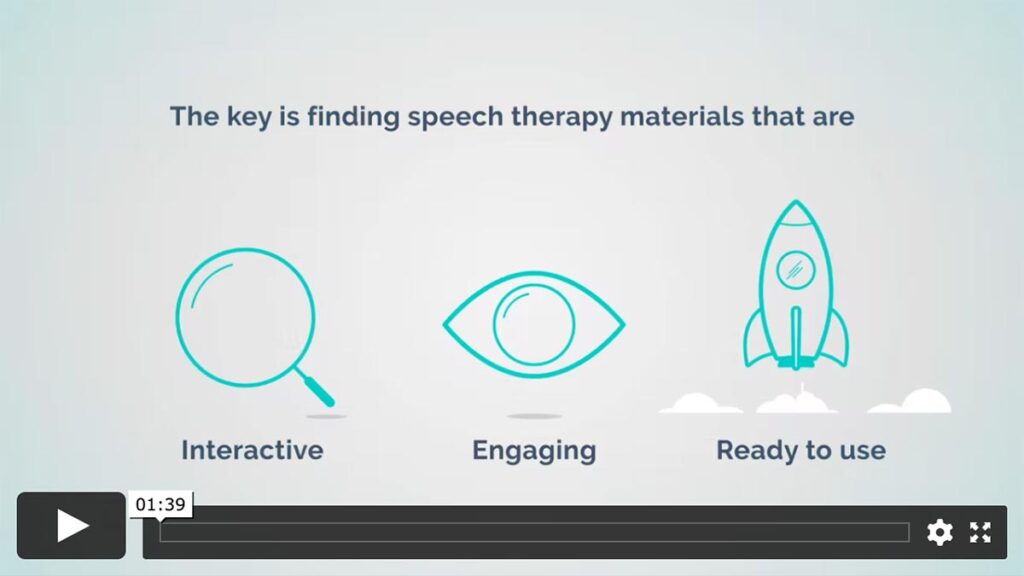



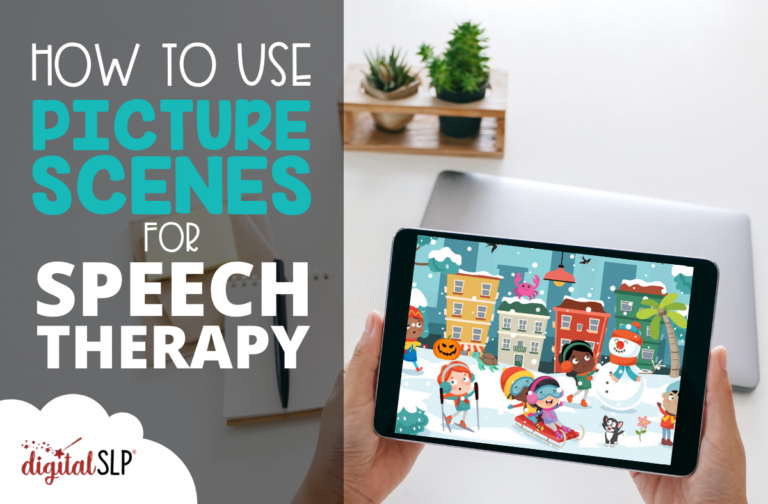

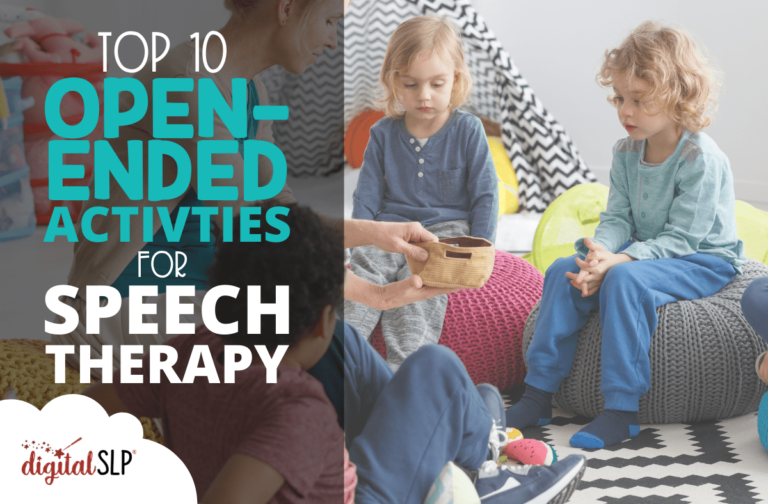
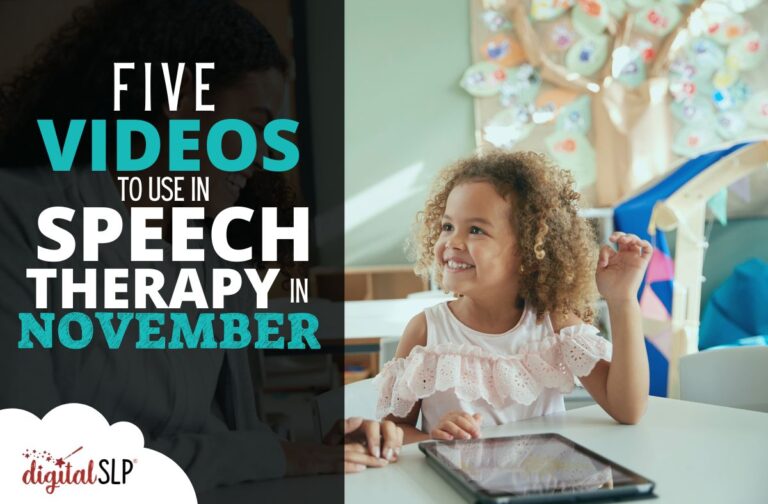
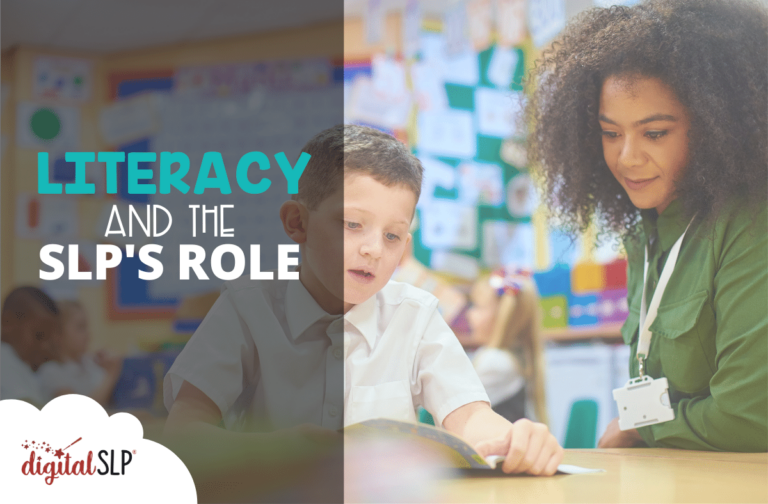

Recent Comments